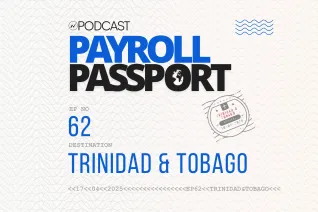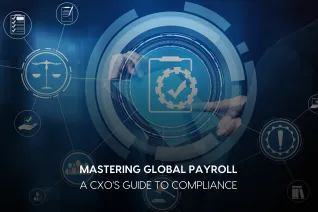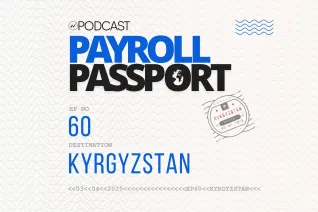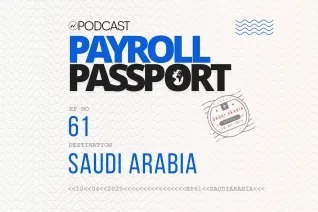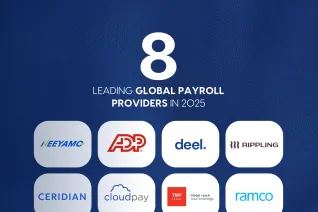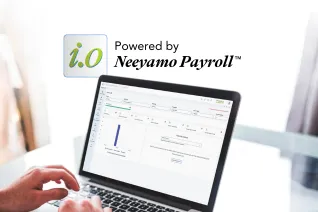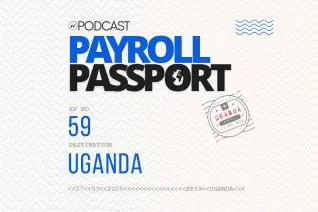Country Spotlight: Employer of Record in Italy
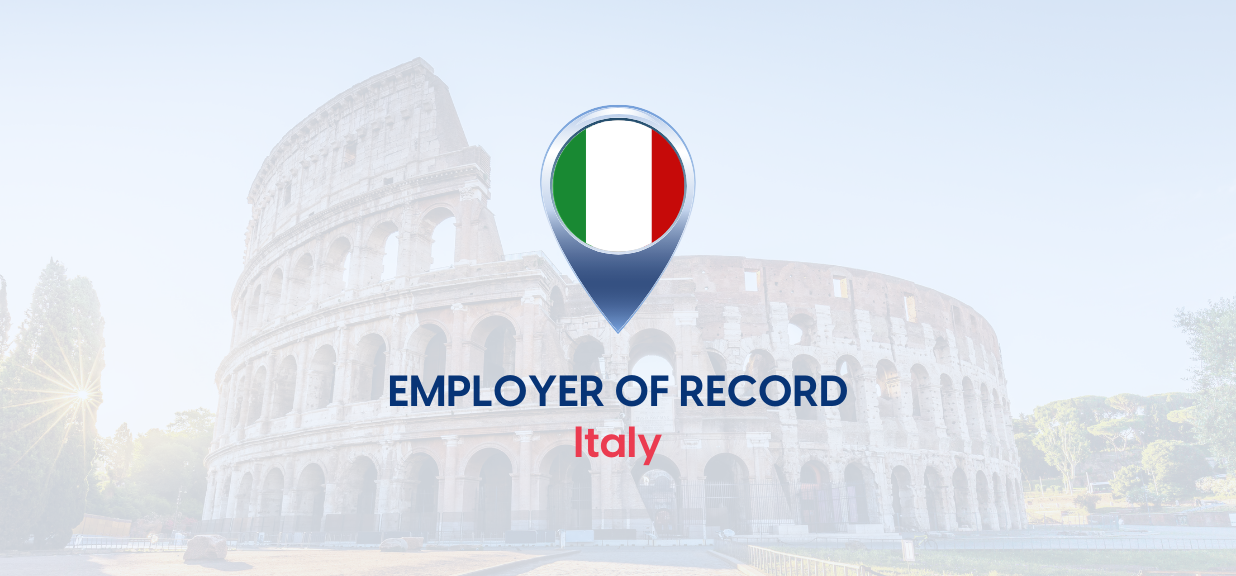
Did you know that Italy boasts the highest number of UNESCO World Heritage Sites in the world? With 58 recognized sites, this cultural powerhouse is not just a haven for history buffs and art enthusiasts but also a thriving hub for global business.
Just as Italy's rich heritage draws millions of visitors annually, its dynamic economy and skilled workforce are constantly attracting companies looking to expand their global footprint.
However, navigating Italy's complex labor laws and employment regulations can be as challenging as finding your way through Venice’s twisty and winding canals. But, this is where an Employer of Record (EOR) service becomes your guide, expertly guiding you through the intricacies of Italian employment.

The Art of Negotiation: Labor Laws and Collective Bargaining Agreements
Just as Michelangelo meticulously carved his sculptures, Italian labor laws are detailed and comprehensive. Collective Bargaining Agreements (CBAs) play a significant role, covering about 80% of the Italian workforce. There are more than 800 national collective agreements in force, each pertaining to a specific sector or profession of the Italian employment scene; employers may find it challenging to navigate these regulations, some of which include:
- Navigating the interplay between national law and CBAs. In many cases, CBAs provide more favorable conditions than the law, and employers must comply with the most beneficial provisions for the employee.
- The "Jobs Act" reform (Legislative Decree No. 23/2015) introduced a new type of open-ended contract ("contratto a tutele crescenti") with gradually increasing protections based on seniority. This coexists with previous contract types, creating a complex system of employee protections.
- Recent legislation (Decree-Law No. 87/2018, known as the "Dignity Decree") has imposed stricter rules on fixed-term contracts, limiting their duration to 12 months without justification or up to 24 months with specific reasons.
An EOR provider will keep you informed about relevant CBAs and ensure your employment practices align with both national laws and industry-specific agreements, helping you navigate this complex landscape as skillfully as a master sculptor.
YOU MAY ALSO LIKE I Enhancing Employee Onboarding with Streamlined Payroll Processes
Ciao for Now: Navigating the Italian Notice Period
In Italy, the notice period for terminating an employment contract is as important as a proper goodbye after a long Italian dinner. The duration is typically specified in the applicable National Collective Bargaining Agreement (CCNL) and varies based on the employee's position and years of service.
A key difficulty faced during these periods is that individual employment contracts or company-level agreements can extend the notice period. Furthermore, if the notice period is not respected, the terminating party must pay an indemnity in lieu of notice equal to the salary the employee would have earned during the notice period.
With the help of an EOR partner, you can ensure that all terminations comply with Italian labor laws, handling the necessary paperwork and calculations to avoid any legal pitfalls that may arise with not possessing a legal entity in the country.
Pasta, Pizza, and Payroll: Understanding Italian Taxation
Italy's tax system is layered and complex. Employers must navigate various contributions, including the Italian income tax (IRPEF), social security, health insurance and regional taxes. The progressive tax rate system ranges from 23% to 43%, depending on the employee's income bracket.
One of the main challenges is the frequent changes in tax laws. For instance, in 2022, Italy introduced a new tax deductions and bonuses system, including the "Superbonus 110%" for energy-efficient home improvements, which can heavily impact employee tax calculations.
A provider like Neeyamo can help you slice through this complexity, ensuring accurate calculations and timely payments using a compliance management system. These providers handle everything from payroll taxes to social security contributions, allowing you to focus on your business growth rather than getting tangled in tax codes.
Data Protection: As Secure as the Vatican Archives
Italy maintains strict data protection standards in line with the European Union's General Data Protection Regulation (GDPR). Employers must implement robust measures to ensure the security and privacy of employee data.
Key requirements needed to be implemented regarding GDPR include:
- Appointment of a Data Protection Officer (DPO) for companies processing large amounts of personal data.
- Mandatory data breach notification within 72 hours.
- Fines for non-compliance can reach up to €20 million or 4% of global annual turnover, whichever is higher.
The country has its own Data Protection Code (Legislative Decree no. 196/2003, as amended by Legislative Decree no. 101/2018) and the Garante or the Italian Data Protection Authority, which acts as an autonomous oversight body. Its primary mission is to safeguard individuals' fundamental rights and freedoms in relation to personal data processing, while ensuring respect for human dignity in all data-related matters.
An experienced EOR service provider will implement robust data security measures, ensuring your employee's personal information is protected with the same diligence and dedication as the Garante.
ALSO READ I Italy: A Guideline to Payroll and Employer of Record
Working Hours: Finding the Perfect Blend
Like perfecting the ideal espresso, Italian working hours require precision. The standard workweek is 40 hours, with a maximum of 48 hours, including overtime. Overtime is typically paid at a premium rate of 10-15% above the regular wage.
The CBAs grant employees in Italy with two years of seniority a special paid leave known as 'Reduction in Working Hours' or ROL. These permits accrue every month and can be redeemed on an hourly basis. A full-time employee accrues 2.66 hours every month, and if not used, it can be paid out at the end of the year.
Types of Leaves in Italy:
Italian leave benefits reflect their enjoyment of life:
- Maternity Leave: 5 months paid, usable 3 months pre-birth.
- Paternity Leave: 10 days paid (20 for multiple births).
- Annual Leave: 4 weeks paid; 2 weeks within a year, remainder within 18 months.
- Sick Leave: Up to 180 days paid annually, with varying wage percentages such as 100% for the first 3 days, 75% for days 4-20, and so on. These payments are split between the employer and social security.
Using an absence management system will help manage these entitlements, ensuring your employees enjoy their time off without causing administrative headaches for your HR team.
Your EOR partner can help you structure working hours that comply with Italian regulations while meeting your business needs, ensuring a perfect work-life balance for your Italian team and using a time management system to ensure that employees are paid appropriately.
Navigating the complexities of Italian employment law doesn't have to be as challenging as deciphering ancient Roman inscriptions. Neeyamo's comprehensive Global Work solution offers a seamless solution for companies looking to tap into Italy's skilled workforce and vibrant market.
Why choose Neeyamo for your EOR needs?
Unlock the power of seamless international expansion with Neeyamo's Global Work solution. Neeyamo helps you hire employees in 150+ countries, allowing you to set no boundaries when hiring talent across the globe. Not convinced yet? Here's why we're your ideal partner:
Clueless with Compliance? Navigate complex international laws confidently.
Cost Concerns? Eliminate local entity setup, and optimize payroll.
Riddled with Risks? Minimize legal and financial risks globally.
Hefty HR operations? From onboarding to offboarding, we take care of your employee life cycle.
Shoulder to Support? 24/7 expert assistance in 50+ languages.
Neeyamo? Your key to effortless global expansion!
Reach out to irene.jones@neeyamo.com to start your Italian expansion adventure today!
Latest Resources
Stay informed with latest updates
If you're curious and have a thirst for knowledge pertaining to the HR, payroll, and EOR universe, don't miss out on subscribing to our resources.





